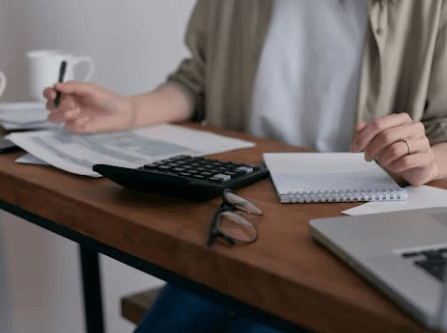Paying someone else’s land taxes might seem like a way to help or even secure rights to a property, but the reality is much more complex. If you’re asking yourself, “What happens if I pay someone else’s land taxes?” the short answer is that it doesn’t automatically give you ownership. While this action can prevent tax foreclosure on the property, ownership remains tied to the titleholder unless transferred through legal processes. For example, some states allow claims via adverse possession, but this typically requires fulfilling strict conditions over several years. Every year, about $21 billion in unpaid property taxes builds up across the U.S., creating a challenging situation even for seasoned investors. Experts like Steve Daria and Joleigh, renowned real estate investors and land buyers for cash, can precisely guide you through these nuances. Whether you’re exploring options to reinvest or curious about your legal rights, their expertise can save you time and money. Get answers to “What happens if I pay someone else’s land taxes?” and more by scheduling a free consultation with Steve Daria and Joleigh today!
Key Points
- Paying Land Taxes Does Not Equal Ownership: If someone else pays land taxes, it doesn’t automatically grant you ownership of their property. Ownership is determined by the property’s title, which remains with the original owner unless a legal transfer occurs.
- It May Prevent Foreclosure but Offers No Rights: Paying taxes can stop a property from going into foreclosure, but it doesn’t give the payer any control over the land. This action benefits the original owner by resolving their tax debt while leaving the title unchanged.
- Adverse Possession Might Apply with Strict Conditions: Some states allow individuals to claim ownership under adverse possession, but this requires meeting specific and lengthy conditions. These may include continuously paying taxes and occupying the property without interruption for years.
- Legal Processes Are Essential for Ownership Transfer: Even after paying taxes, securing ownership requires formal steps like purchasing the property or filing ownership claims in court. Without following legal procedures, the payer cannot claim any rights to the land.
- Consulting Experts is Vital to Avoid Mistakes: Handling such situations without proper knowledge can lead to costly mistakes. Experienced real estate investors and cash land buyers, Steve Daria and Joleigh, are here to help you understand your options and guide you through the process with confidence.
What does it mean to pay someone else’s land taxes?
Paying someone else’s land taxes means covering the overdue property tax bills for land you don’t legally own.
Many people choose to do this either to help the owner avoid financial trouble or because they hope to gain ownership of the land in the future.
However, people often ask, “What happens if I pay someone else’s land taxes?” The answer is that paying the taxes doesn’t give you any automatic ownership rights to the property.
The legal owner still holds the title, and your payment is only helping to settle their tax debt.

Some individuals may attempt this to eventually claim the property through legal methods, such as adverse possession, but this process is complicated and varies by state.
To make such a claim, you would need to meet several requirements, like occupying the land continuously for a certain number of years and showing proof of payment.
You might not see any benefit from paying the taxes without fulfilling these conditions.
If you’re considering this route, learning the local laws and understanding the risks is important.
Asking, “What happens if I pay someone else’s land taxes?” is a smart first step to avoid unexpected issues.
Get Started: Get Your Cash Offer Below…
We are direct land buyers. There are no commissions or fees and no obligation whatsoever. Start below by sharing where your property is and where we can send your offer…
What laws apply when paying someone else’s taxes on their property?
When you pay someone else’s taxes on their property, various state and local laws determine what happens next.
Many wonder, “What happens if I pay someone else’s land taxes?” While it may seem like you could gain property ownership, tax payments alone do not transfer legal ownership.
Property ownership is tied to the title, and paying the taxes only settles the owner’s debt with the local government.
Some states have laws allowing for processes like adverse possession or tax lien purchases, but these require specific steps and conditions.
For example, adverse possession laws might require you to live on or openly take responsibility for the land for a certain period.
Tax lien laws are another factor to consider. In some cases, paying the taxes might make you eligible to purchase a tax lien, which could lead to ownership if the current owner fails to pay back what they owe.
However, the rules around tax liens vary widely by location. Understanding “What happens if I pay someone else’s land taxes?” involves carefully researching the laws in your region and possibly consulting with a lawyer or real estate professional.
Acting without understanding these laws could lead to financial loss and legal challenges, so moving cautiously is critical.
How long can I pay someone’s property taxes before claiming ownership?
- Adverse Possession Usually Requires Many Years of Occupancy: Most states have laws about adverse possession, which means you could claim ownership after living on the property for a specific time. Depending on the state, this period often ranges from 5 to 30 years.
- Paying Taxes Alone isn’t Enough: Simply paying property taxes doesn’t mean you can automatically claim ownership. You usually have to meet other requirements, like openly using and maintaining the land as if it were your own.
- Each State Has Different Laws and Timeframes: Some states require you to live on the property for many years, while others might not recognize claims based on tax payments. Researching your state’s rules is important to know how long you must wait.
- Continuous and Visible Use is Often Required: Adverse possession laws typically require you to actively use the land in an obvious way to others. This includes building on the property or farming it for the required number of years.
- Consult Legal Experts to Understand Your Rights: The question of “How long can I pay someone’s property taxes before claiming ownership?” can be tricky and depends on your local laws. Consulting a real estate lawyer offers tailored guidance and clear insights designed to address your unique circumstances.

What are the risks of paying taxes on land I don’t own?
Paying taxes on land you don’t own comes with several risks you should consider carefully.
Many people wonder, “What happens if I pay someone else’s land taxes?” The first risk is that paying the taxes doesn’t give you any legal property ownership.
Even though you’ve spent money on the taxes, the rightful owner still holds the title and can take back full control of the land.
Another risk is that the owner may repay your taxes, which will cancel your chance of gaining any rights to the property.
There’s also the possibility of losing your investment if you were hoping to claim ownership through complex processes like adverse possession, which can be hard to achieve due to strict legal requirements.
Additionally, local laws governing this situation vary widely, and acting without a clear understanding of them could lead to legal or financial trouble.
To avoid these risks, it’s best to seek legal advice before deciding to pay taxes on land you don’t own.
What documents or proof do I need if I intend to claim ownership later?
- Proof of Tax Payments: Keep all receipts or records showing that you’ve been paying the property taxes. This indicates that you’ve been financially responsible for the land, which might help in future ownership claims.
- Deed or Title Records: While you may not have the deed initially, obtaining a copy of the title or researching it can help you track ownership. You’ll need this information to understand who legally owns the property and whether the title is clear of issues.
- Proof of Land Use or Improvement: Document any work you’ve done on the property, such as building, maintaining, or farming the land. Photos, receipts for supplies, and witness statements can show that you’ve been using the land to strengthen your claim.
- Notices to the Owner or Interested Parties: If you’ve been in contact with the owner or have sent formal notices about your intentions, keep copies of those communications. This shows that you’ve been transparent and made efforts to address the situation properly.
- Legal Records or Agreements: Some states require specific legal steps, like filing for adverse possession or participating in a tax lien process. Consult a lawyer to help you file any important documents or ensure you meet the legal requirements for your claim.
How do I verify if the land has any liens or pending disputes before taking further steps?
Before taking further steps on a piece of land, it’s crucial to check if it has any liens or pending disputes.
Start by visiting your local county assessor’s or recorder’s office to review public records for any outstanding debts or claims tied to the property.
You can also request a title search, which will reveal any legal issues, such as unpaid taxes or ownership conflicts.
This helps avoid surprises and answers questions like “What happens if I pay someone else’s land taxes?” Consulting a real estate lawyer or title company can help you understand any potential issues clearly.
Experts like Steve Daria and Joleigh, seasoned real estate investors and land buyers for cash, emphasize the importance of doing thorough research before making any commitments.
By acting now, you can safeguard yourself from expensive mistakes down the road.
If you’re ready to move forward or need advice, reach out to Steve Daria and Joleigh for guidance from experienced professionals who value transparency and expertise.
**NOTICE: Please note that the content presented in this post is intended solely for informational and educational purposes. It should not be construed as legal or financial advice or relied upon as a replacement for consultation with a qualified attorney or CPA. For specific guidance on legal or financial matters, readers are encouraged to seek professional assistance from an attorney, CPA, or other appropriate professional regarding the subject matter.
